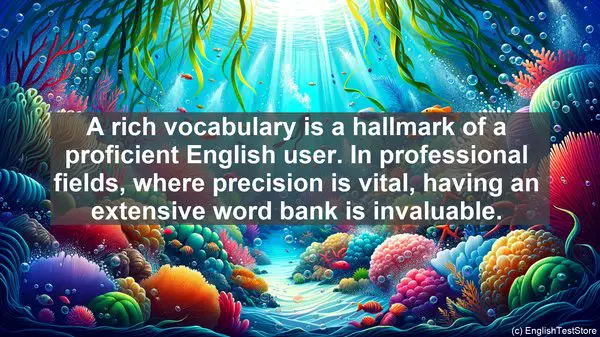Introduction: The Importance of English Proficiency in Professional Fields
In today’s lesson, we’ll be diving into the world of professional English. Whether you’re a student aspiring to enter the legal, medical, or technical field, or a professional already working in these domains, having a strong command of English is crucial. It not only enhances your communication skills but also opens up a world of opportunities. So, let’s get started!
1. Reading Extensively: The Foundation of Language Mastery
Reading is the backbone of language learning. In professional fields, it’s essential to stay updated with the latest research, case studies, or technical documentation. Regular reading not only expands your vocabulary but also exposes you to different writing styles and industry-specific jargon. So, make it a habit to read extensively, be it legal precedents, medical journals, or technical manuals.
2. Active Listening: Enhancing Comprehension and Pronunciation
Listening actively is a skill that’s often overlooked. In professional settings, understanding instructions, client briefs, or medical reports accurately is crucial. Regularly listening to podcasts, lectures, or even watching legal dramas can improve your comprehension skills. Additionally, it helps with pronunciation, as you can mimic native speakers’ intonation and rhythm.

3. Writing Precisely: Conveying Information Effectively
In professional fields, precision is key. Whether it’s drafting a legal contract, a medical report, or a technical specification, your writing should be concise and unambiguous. Practice summarizing complex information into clear, actionable points. Tools like grammar checkers and style guides can also be handy in ensuring your writing adheres to industry standards.
4. Building a Robust Vocabulary: The Power of Words
A rich vocabulary is a hallmark of a proficient English user. In professional fields, where precision is vital, having an extensive word bank is invaluable. Make it a habit to learn new words daily, especially those specific to your domain. Flashcards, word games, or even creating a word journal can aid in retention.
5. Networking: Expanding Horizons and Learning Opportunities
Networking isn’t just about making professional connections; it’s also a way to enhance your language skills. Engaging in conversations with industry peers, attending conferences, or even participating in online forums exposes you to different perspectives and language styles. It’s an opportunity to learn industry-specific terminology and stay updated with the latest trends.
6. Embracing Technology: Tools for Efficiency and Accuracy
In the digital age, numerous language tools are at our disposal. From grammar checkers to translation apps, these tools can streamline your work and ensure accuracy. However, it’s essential to use them judiciously, as they’re aids, not substitutes for your language skills.
7. Practicing Speaking: Overcoming the Fear of Public Speaking
Public speaking is often a daunting task, but in professional fields, it’s a skill that can set you apart. Joining debate clubs, presenting at conferences, or even recording yourself speaking and analyzing it can help build confidence. Remember, practice makes perfect!
8. Cultural Sensitivity: Navigating the Global Workforce
In today’s interconnected world, working with diverse teams is common. Understanding cultural nuances, both in language and behavior, is crucial. It helps avoid misunderstandings and fosters effective collaboration. Engaging in cross-cultural activities, such as language exchanges or cultural events, can broaden your horizons.
9. Continuous Learning: A Journey, Not a Destination
Language is ever-evolving, and so should your skills. Whether it’s attending workshops, enrolling in courses, or even subscribing to language-focused newsletters, make learning a lifelong commitment. It not only keeps you updated but also showcases your dedication to professional growth.
10. Seeking Feedback: Refining Your Language Skills
Constructive feedback is invaluable in honing your language skills. Whether it’s from a mentor, a language partner, or even through self-evaluation, actively seeking feedback helps identify areas of improvement. It’s a step towards continuous growth and mastery.

